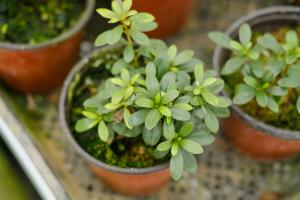Introduction
Israel is a country that is dedicated to environmental sustainability and has been planting trees for decades. The country is known for its vast deserts and arid landscapes, but despite these challenging conditions, Israel has managed to maintain its lush greenery through the planting of various tree species. This article aims to explore the types of trees that Israel is planting and why.
Types of trees planted in Israel
One of the most popular types of trees that Israel is planting is the olive tree. Olive trees thrive in Israel's arid climate and are an important crop for the country's agriculture industry. In addition to olive trees, other fruit trees such as pomegranate, fig, and citrus trees are also commonly planted.
Cypress trees play a crucial role in preventing soil erosion in the hilly regions of the country. They are also planted as windbreakers and to provide shade. Eucalyptus trees are planted for their rapid growth and ability to absorb excess water, as they are commonly found in wetlands.
Another notable tree species that is planted in Israel is the Carob tree. Its sweet and nutritious pods are used in a variety of ways, including as animal feed and in the production of food and cosmetics.
Why are they planted?
The primary reason for planting trees in Israel is to combat desertification caused by climate change and deforestation. Trees play an essential role in retaining water in the soil, preventing soil erosion, and providing habitat for numerous wildlife species.
The Israeli government also recognizes the importance of afforestation in contributing to the country's economy. The production of olive oil, fruits, and nuts is a vital sector of Israel's agricultural industry, and planting more olive, pomegranate, fig, and other fruit trees can create new jobs and boost the economy.
Additionally, planting trees has a substantial impact on the country's tourism industry. Visitors from around the world are drawn to Israel's green landscapes and natural beauty. The trees contribute to creating an aesthetically pleasing environment that encourages tourism.
Tree planting initiatives in Israel
The Israeli government and several nonprofit organizations have launched several initiatives aimed at increasing afforestation in the country. One of these initiatives is the Keren Kayemeth LeIsrael-Jewish National Fund (KKL-JNF).
KKL-JNF is responsible for the planting and maintenance of millions of trees across the country and is dedicated to promoting environmental conservation in Israel. The organization operates in cities, towns, and rural areas, encouraging community involvement in planting more trees to help mitigate the effects of climate change and enhance Israel's environment.
Conclusion
Israel is a remarkable example of what can be achieved through dedicated afforestation efforts. The country has demonstrated that even in the most challenging climates and arid landscapes, we can still sustainably manage our environment through tree planting.
As climate change continues to threaten our natural environment, more initiatives like those in Israel will be necessary to mitigate its effects. By planting trees and promoting environmental conservation, we can enhance our planet's biodiversity while building thriving communities that can sustainably coexist with our planet's fragile ecosystems.

 how many times do yo...
how many times do yo... how many planted tre...
how many planted tre... how many pine trees ...
how many pine trees ... how many pecan trees...
how many pecan trees... how many plants comp...
how many plants comp... how many plants can ...
how many plants can ... how many plants and ...
how many plants and ... how many pepper plan...
how many pepper plan...































